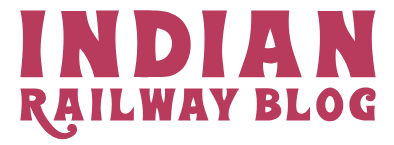The Indian Railways, one of the world’s largest railway networks, has recently made an important announcement about changes in its recruitment process. The Indian Railways has revived separate recruitment examinations for officer-level positions, marking a significant shift from the integrated approach that was previously in place. This pivotal decision has implications for both aspiring candidates and the strategic operations of the Railways.
Background: A Shift from the Integrated Recruitment System
In the past decade, Indian Railways had adopted a unified recruitment system where selection for various officer posts was conducted through a combined exam. However, this model faced criticism due to several challenges:
- Lack of specialization in recruitment
- Extended timelines causing delays in the process
- Insufficient targeting of the skillsets required for specialized positions
With these ongoing challenges hampering recruitment effectiveness, Indian Railways has now chosen to revert to the traditional modus operandi of conducting separate exams for different officer positions.
Reason for the Change
This overhaul in the recruitment strategy is aimed at achieving certain key objectives that align with the operational demands and the evolving landscape of Indian Railways:
1. Enhanced Specialization
Separate exams for officer recruitment are expected to:
- Ensure the selection of candidates with the specific skills required for each role
- Cultivate a more focused understanding and knowledge base in employees from the onset
2. Reducing Recruitment Delays
The integrated system often resulted in delays due to its complex nature. The new approach aims to:
- Streamline the recruitment process
- Reduce administrative bottlenecks, enabling quicker onboarding
3. Improved Candidate Experience
Applying for the Railways’ officer positions can be daunting. The separate exam framework:
- Provides clarity to candidates about the exact nature of the job they are applying for
- Enables candidates to prepare specifically for the roles they are interested in
Details of the Revived Recruitment Process
Under the revamped system, Indian Railways will conduct different exams for distinct officer cadres, such as:
- Engineering Services
- Traffic Services
- Accounts Services
- Personnel Management
- Signalling and Telecommunications
Each of these cadres will have distinct recruitment exams that are devised to test the specific knowledge and skills pertinent to that domain. The exams will be structured to evaluate both the technical and managerial proficiencies of applicants.
Impact on Aspiring Candidates
This decision to hold separate recruitment exams could be a game-changer for many aspiring candidates aspiring to serve in the Indian Railways. It brings about several impacts:
1. Greater Opportunities
The emphasis on specialization opens up a wider array of opportunities for candidates with varied educational backgrounds and skill sets to find their niche in the railway services.
2. Focused Preparation
A separate recruitment process means:
- Candidates can delve deeply into subjects specific to their desired positions
- It allows for more focused preparation, potentially increasing success rates
3. Competitive Edge
As the exams are tailored for specific roles, candidates with specialized knowledge may find themselves with a competitive edge over others.
Challenges Ahead
While the decision to reinstate separate recruitment exams brings many advantages, it is not without potential challenges:
- Increased administrative burden to conduct multiple exams
- The necessity for creating distinct and up-to-date curricula for each exam
- The anticipated requirement for greater coordination between various departments of Indian Railways
Conclusion
The revival of separate recruitment exams in Indian Railways is a strategic move aimed at augmenting efficiency, specialization, and effectiveness within the organization’s sprawling network. This change reflects a commitment to optimizing human resource practices in alignment with operational needs. For aspiring railway officers, this shift can be seen as an opportunity to better align their aspirations and skills with the roles they aim to secure within the Indian Railways’ hierarchy. As the new process unfolds, the impact will be observed not only in the efficiency of recruitment but also in the quality of service and operations of one of the largest employers in the world.
“`






